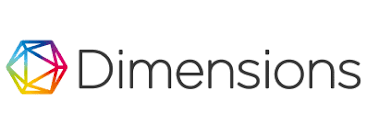Adaptasi dan Validasi CRISO Psychological Climate Questionnaire (CRISO-PCQ) Versi Bahasa Indonesia
Abstract
Tujuan dari penelitian ini adalah untuk mengadaptasi dan memvalidasi alat ukur CRISO-Psychological Climate Questionnaire (CRISO-PCQ) dalam versi bahasa Indonesia yang dikembangkan oleh Gagnon., et al (2009). Total partisipan pada penelitian ini adalah 204 dosen yang bekerja di enam perguruan tinggi swasta di Indonesia. Validitas diuji dengan menggunakan Content Validity Index (CVI), Confirmatory Factor Analysis (CFA), serta korelasi konvergen dan diskriminan, sedangkan reliabilitas diuji dengan menggunakan Construct Reliability (CR). Hasil dari Scale-Content Validity Index (S-CVI) menunjukkan bahwa CRISO-PCQ memiliki validitas ini yang baik (S-CVI/Ave = 0,96). Hasil dari uji CFA menunjukkan hasil yang good fit. CR juga memiliki hasil yang baik dengan nilai CR pada dimensi peran (0.90); pekerjaan (0.89); Kepemimpinan (0.91); Kerja tim (0.92); dan organisasi (0.92). Secara keseluruhan CRISO-PCQ memiliki nilai CR sebesar 0.92. Berdasarkan hasil dari uji validitas konvergen dan diskriminan, diketahui bahwa iklim psikologis memiliki memiliki hubungan yang positif dan signifikan terhadap kepuasan kerja, serta negatif dan signifikan terhadap stres kerja. Dengan demikian, CRISO-PCQ versi bahasa Indonesia dapat menunjukkan properti psikometrik yang baik dan terbukti valid dan reliabel untuk mengukur iklim psikologis, khususnya bagi partisipan yang telah terbiasa menggunakan bahasa Indonesia.
Keyword: Iklim Psikologis, Adaptasi, Validasi, Indonesia
Full Text:
PDF (Bahasa Indonesia)References
Azra, M. V., Etikariena, A., & Haryoko, F. F. (2018). The effect of job satisfaction in employee’s readiness for change. Diversity in Unity: Perspectives from Psychology and Behavioral Sciences, 503–510. https://doi.org/10.1201/9781315225302
Beaton, D. E., Bombardier, C., Guillemin, F., & Ferraz, M. B. (2000). Guidelines for the Process of Cross-Cultural Adaptation of Self-Report Measures. Spine, 25(24), 3186–3191. https://doi.org/10.1080/000163599428823
Bentler, P. M. (1990). Comparative fit indices in structural equation models. Psychological Bulletin, 107(2), 238-246.
Cohen, S., & Janicki-Deverts, D. (2012). Who’s Stressed? Distributions of Psychological Stress in the United States in Probability Samples from 1983, 2006, and 2009. Journal of Applied Social Psychology, 42(6), 1320–1334. https://doi.org/10.1111/j.1559-1816.2012.00900.x
D’Amato, A., & Zijlstra, F. R. H. (2008). Psychological climate and individual factors as antecedents of work outcomes. European Journal of Work and Organizational Psychology, 17(1), 33–54. https://doi.org/10.1080/13594320701307420
Deniz, Y., & Kanten, P. (2020). The Effects of Perfectionism on Proactive and Innovative Behaviors: Role of Psychological Climate. Pressacademia, 11(1), 178–184. https://doi.org/10.17261/pressacademia.2020.1263
Gagnon, S., Paquet, M., Courcy, F., & Parker, C. P. (2009). Measurement and Management of Work Climate: Cross-Validation of the CRISO Psychological Climate Questionnaire. Healthcare Management Forum, 22(1), 57–65. https://doi.org/10.1016/S0840-4704(10)60294-3
James, L. R., Hater, J. J., Gent, Mi. J., & Bruni, J. R. (1978). Psychological Climate: Implications From Cognitive Social Learning Theory and Interactional Psychology. Personnel Psychology, 31(4), 783–813. https://doi.org/10.1111/j.1744-6570.1978.tb02124.x
Jones, A. P., & James, L. R. (1979). Psychological climate: Dimensions and Relationships of Individual and Aggregated Work Environment Perceptions. Organizational Behavior and Human Performance, 23(2), 201–250. https://doi.org/10.1016/0030-5073(79)90056-4
Kahn, W. A. (1990). Psychological Conditions of Personal Engagement and Disengagement at Work. Academy of Management Journal, 33(4), 692–724. https://doi.org/10.5465/256287
Kavyashree, M. B., & Kulenur, S. (2023). Psychological Climate and Employee Engagement at Workplace. Indian Journal Of Science And Technology, 16(6), 385–390. https://doi.org/10.17485/ijst/v16i6.144
Lynn, M. R. (1986). Determination and Quantification on content validity. Nursing Research, 35, 382–386.
MacCallum, R., Browne, M., & Sugawara, H. (1996). Power analysis and determination of sample size for covariance structure modeling. Psychological Methods, 1(2), 130–149. https://doi.org/10.1037/1082-989X.1.2.130
MacCallum, R. C., & Hong, S. (1997). Power analysis in covariance structure modeling using GFI and AGFI. Multivariate Behavioral Research, 32(2), 193–210. https://doi.org/10.1207/s15327906mbr3202_5
Ojokuku, R. M., Sajuyigbe, A. S., & Dare, B. O. (2022). Person-Job Fit, Affective Commitment, Psychological Climate, and Employee Engagement in the Nigerian Telecommunication Sector : Evidence from 9Mobile Nigeria Limited. African Journal of Business and Economic Development, 2(9), 19–32.
Parker, C. P., Roberts, J. E., Baltes, B. B., Young, S. A., LaCost, H. A., Huff, J. W., & Altmann, R. A. (2003). Relationships Between Psychological Climate Perceptions and Work Outcomes: a Meta-analytic Review. Journal of Organizational Behavior, 24(4), 389–416. https://doi.org/10.1002/job.198
Polit, D. F., & Beck, C. T. (2006). The Content Validity Index: Are You Sure You Know What’s Being Reported? Critique and Recommendations. Research in Nursing and Health, 29(5), 489–497. https://doi.org/10.1002/nur.20147
Puspacarira, K. A., & Seniati, A. N. L. (2017). Iklim Psikologis dan Kepercayaan Interpersonal : Pengaruhnya bagi Perilaku Berbagi Pengetahuan pada Dosen Perguruan Tinggi Di Indonesia. Prosiding SEMNAS Penguatan Individu Di Era Revolusi Informasi, 209–215.
Saraswati, K. D. H. (2017). Perilaku Kerja, Perceived Stress, dan Social Support pada Mahasiswa Internship. Jurnal Muara Ilmu Sosial, Humaniora, Dan Seni, 1(1), 216. https://doi.org/10.24912/jmishumsen.v1i1.352
Schulte, M., Ostroff, C., & Kinicki, A. J. (2006). Organizational Climate Systems and Psychological Climate Perceptions : A Cross-level Study of Climate-satisfaction Relationships. Journal of Occupational and Organizational Psychology, 79, 645–671. https://doi.org/10.1348/096317905X72119
Spector, P. E. (1985). Measurement of Human Service Staff Satisfaction: Development of the Job Satisfaction Survey. American Journal of Community Psychology, 13(6), 693–713. https://doi.org/10.1007/BF00929796
Wardani, L. M. I., & Noviyani, T. (2020). Employee Well-being as Mediator of Correlation between Psychological Capital and Psychological Climate. Journal of Educational, Health, and Community Psychology, 9(2), 47–63. https://doi.org/10.12928/jehcp.v9i2.14357
West, M. A., & Wichter, A. W. (2008). Climates and Cultures for Innovation and Creativity at Work. In J. Zhou & C. E. Shalley (Eds.), Handbook of Organizational Creativity (p. 211). Lawrence Erlbaum Associates.
Yaghmaie F. (2003). Content Validity and its Estimatimation. Spring, 3(1), 25–27. https://doi.org/10.22037/JME.V311.870
Yuntari, C. A. S., Syakina, D., Rahmayanti, N. Z., Fitria, R. L., & Singadimeja, H. G. (2021). Iklim Psikologis sebagai Prediktor Kesejahteraan Psikologis pada Karyawan Industri Farmasi di Jabodetabek. Empathy : Jurnal Fakultas Psikologi, 4(2), 84. https://doi.org/10.12928/empathy.v4i2.21958
Zeitlin, W., Claiborne, N., Lawrence, C. K., & Auerbach, C. (2016). Validating the Psychological Climate Scale in Voluntary Child Welfare. Research on Social Work Practice, 26(2), 203–211. https://doi.org/10.1177/1049731514546169
DOI: http://dx.doi.org/10.24014/jp.v19i2.23501
Refbacks
- There are currently no refbacks.
REDAKSI : JURNAL PSIKOLOGI
Jl. H.R. Soebrantas Km. 15.5 No. 155,
Gedung Fakultas Psikologi UIN Sultan Syarif Kasim Riau
Kel. Tuahmadani, Kec. Tampan, Pekanbaru – Riau 28293
1.jpg)
.jpg)















